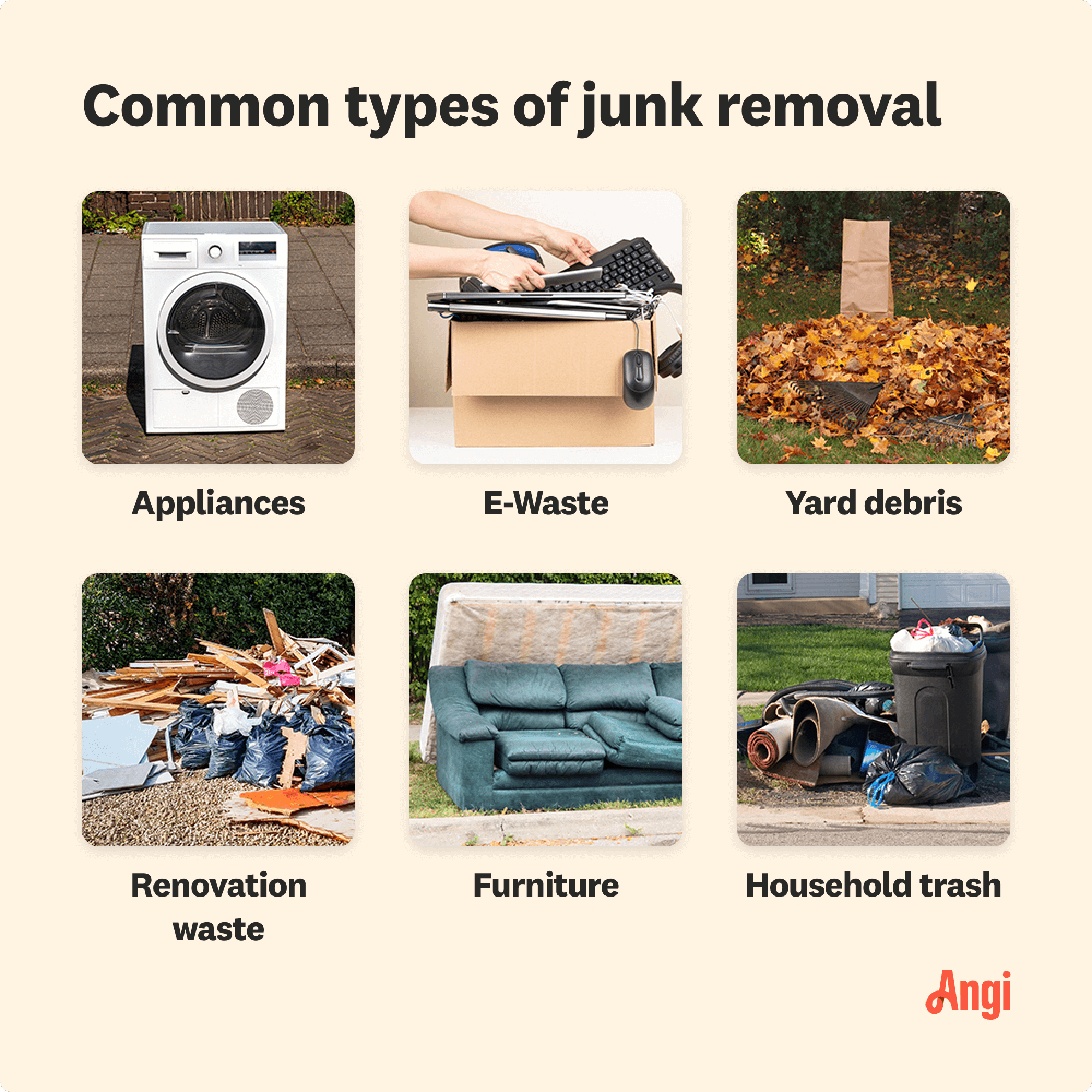
Get clear answers on oil tank removal costs, including average prices, key factors, and ways to save. Learn what impacts your project and how to budget.
It takes a few small steps to dispose of big items safely


Every once in a while, you have an item that won’t fit in your regular garbage bin. It’s tempting to just put it on the curb, but this doesn’t guarantee that it’ll get picked up on trash day. Most of the time, you’ll need to schedule a bulk trash pickup service to dispose of large or heavy items. The process is simple, and there are also several great alternatives.
Bulk trash pickup is separate from your regular trash disposal and recycling services. It’s a safe and convenient way to get rid of items that are too large to fit into a standard waste bin or that are too heavy or difficult to handle during regular trash pickup. Bulk trash pickup is a good option if you cannot transport the large item to a disposal site yourself.
Items that commonly require bulk trash pickup include:
Mattresses and box springs
Bed frames
Christmas trees
Cabinetry
Furniture
The cost of bulk trash pickup varies by location. In many cities and townships, it’s included as part of an overall waste management service, which tends to cost $20 to $80 per month. In some locations, however, separate fees are associated with bulk pickup.
If your municipality doesn’t offer bulk trash pickup, or if you have a large volume of items to get rid of, you can also hire a local garbage removal pro or junk removal service. The cost of junk removal can range from $60 to $700, depending on the amount and type of items you have to remove.

Scheduling bulk trash pickup is a straightforward process with only a few simple steps.
Call or search online to determine whether or not your local waste management company or municipality offers bulk trash pickup service. If they don't, contact a local junk removal service.
You'll provide your name, location, contact information, and a description of your items for pickup.
If you submit your request over the phone, you may receive confirmation immediately with a date and time to expect pickup. If you submit your request via an online form, you'll need to wait for the provider to receive and process your request before they confirm. At this time, ask any questions you have about where it is best to leave your items.
Follow any guidance your pickup provider provides about preparing your items for pickup. This may include:
Bundling yard trimmings in compostable bags
Covering fabric items in plastic
Draining water from appliances and plumbing fixtures
Dividing long items into smaller sections

If bulk pickup is unavailable in your area or if your provider deems your items unacceptable for pickup, you have other disposal options.
Transport the items to a landfill or other waste disposal site yourself
Donate or recycle the item locally
Rent a dumpster for large quantities of waste, such as construction debris
Many waste management providers and junk removal companies won’t handle hazardous waste. The best approach for how to dispose of hazardous waste will depend on the type of waste, so do your research to ensure you dispose of it safely.
Bulk trash pickup is often available at no additional cost for waste management customers. If you need to hire a junk removal service, you’ll pay anywhere from $60 to $700. Depending on the type of trash you’re removing, you may save by renting a truck and hauling the item or items yourself. A moving truck costs anywhere from $30 to $3,500.
Another option is renting a roll-off dumpster, which you can fill yourself and then have hauled away by the dumpster rental provider. The average cost of a dumpster rental is $300 to $500.
From average costs to expert advice, get all the answers you need to get your job done.

Get clear answers on oil tank removal costs, including average prices, key factors, and ways to save. Learn what impacts your project and how to budget.

Need to get rid of paint, solvents, or other chemicals? Use this guide on hazardous waste disposal costs to see what professional removal will cost.

Mattresses are considered hazardous waste, so you’ll likely have to pay disposal fees. Use this guide on mattress removal costs to see what your total will be.

Find out what is considered electronic waste, why these electrics are tossed rather than recycled, and why they can be harmful to the environment.

Burning is an efficient way to dispose of yard waste, but it comes with risks. Follow the tips and steps in this guide to learn how to safely burn yard waste.

Once the holidays are over, it’s time to get rid of your Christmas tree. Here are the various options for properly disposing of your well-loved Christmas tree.